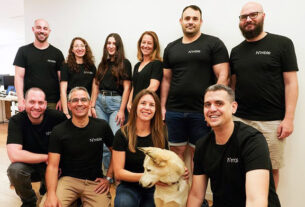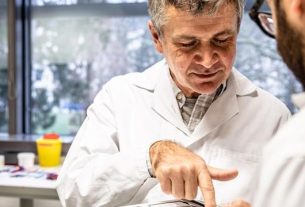BIRD Aerosystems will launch a new environmental monitoring system at the Paris Air Show later this month.
The defense technology company usually develops solutions for governments and related agencies to protect the air, sea and land. Its new ASIO solution will address the critical challenge of maritime pollution detection by preventing costly and ecologically devastating oil spills.
The company said the system integrates Electro-Optical Payload and Multi-Mode Radars with a new advanced sensor named SEA EYE.
“The SEA EYE enables real-time spectral detection and classification of surface and even submerged oil and organics,” the company said. “Installed on the ASIO airborne platform, it offers real-time oil pattern recognition and classification, accurately predicting the oil’s spread. The SEA EYE’s prediction tool also empowers users to anticipate the oil’s spread, enabling swift and efficient responses to minimize their impact on the environment and the economy and mitigate potentially catastrophic consequences.”
According to Shaul Mazor, vice president of marketing and business development for BIRD Aerosystems, the company started developing solutions for organizations looking for various types of port surveillance in recent years. One international company raised the question of an environmental monitoring system to see if ships coming to its port were polluting the ocean and, if so, how much and in what way.
“It was a simple request,” Mazor told The Jerusalem Post. “But when we started, we realized there was no solid airborne solution [for this challenge]. The few solutions that do exist offer limited capabilities. So we went to look for the right tech that could be added into our aircraft and would allow this sensitive monitoring capability.”
SEA EYE detects pollution in the water
The SEA EYE allows the systems to detect different types of pollution in the water at the surface and deeper levels of up to two meters. It can also determine what kind of oil is being leaked and pinpoint which ships are responsible exactly. Finally, it can make it easier to evaluate the damage level and the required response type.
In 2021, Israel experienced one of its worst environmental disasters when a ship suspected of smuggling oil from Iran to Syria spilled tons of crude oil into the eastern Mediterranean. The spill covered over 90% of Israel’s Mediterranean coastline with over 1,000 tons of black tar. But due to lack of surveillance, blame could never legally be attributed.
“Once an oil spill has been detected, the up-to-date environmental awareness picture is shared using real-time communication to a dedicated control center to manage the response to the spill,” BIRD explained. “The cleanup action progress is also being addressed and continuously monitored by the SEA EYE, making it possible for decision-makers to adjust the response efforts as needed and ensure that the spill is contained and cleaned up as effectively as possible, determining the most appropriate response measures.”
Mazor said the company believes the system will be sought after by the most significant oil manufacturers, such as Shell and Exon, to monitor their drilling in the water.
“It enables customers to effectively detect and immediately reduce the direct and indirect damage costs of oil spills while significantly minimizing the total impact on the environment and economics,” Ronen Factor, Co-CEO and founder at BIRD Aerosystems, said.




